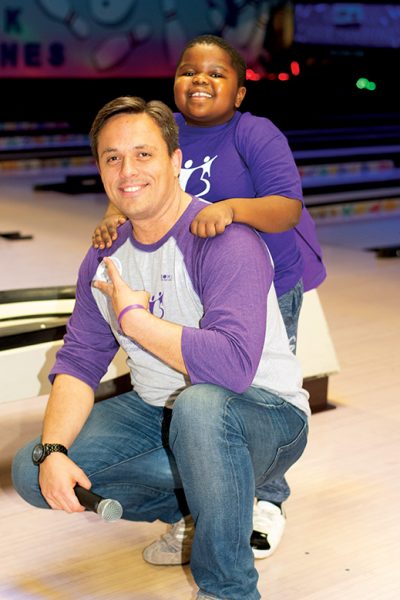
Carlos Lejnieks wants to rewrite history.
Lejnieks, the president and CEO of Big Brothers Big Sisters of Essex, Hudson and Union Counties, knows how far positive influences can go in changing the lives of kids who might otherwise have a future without hope.
“Evidence shows that negative things decrease while positive outcomes increase when we get on the front end of young people’s lives,” says Lejnieks.
That’s the vision behind Big Brothers Big Sisters and its ambitious mentoring program. The nonprofit’s overarching mission is to have adults, called Bigs, volunteer four hours a month—just one hour a week—to mentor a child (or Little) in grades K-12. The Big provides stability and a positive foundation for youth development by engaging in activities with his or her Little. These activities might include a sports event or a visit to a museum or college. “The variable is the activity,” says Lejnieks. “The constant is the Big.”
Now celebrating its 10th anniversary, Big Brothers Big Sisters of Essex, Hudson and Union serves just over 1,000 kids. The program started with the support of such prominent philanthropists as Josh Weston, Ray Chambers, the Simon Foundation, Leslie Quick and Rose Cali.
Fundraising remains an important function. The program hosts an annual Bowl for Kids Sake fundraiser in West Orange, with as many as 1,000 Bigs, Littles and friends coming together for bowling. The organization also hosts an annual summer picnic and winter roller-skating party at Branch Brook Park in Newark.
There is plenty of proof of mentoring’s positive impact on at-risk kids. In 2018, 95 percent of the kids serviced by Big Brothers Big Sisters of Essex, Hudson and Union graduated from high school. That’s especially impressive, considering 29 percent of the young people in the program have parents who are incarcerated. That’s where stability plays a key role. On average, most of the program’s mentoring matches last more than double the minimum requirement of one year.
Amid this success, it’s hard to meet the demand for adult mentors, particularly male mentors. Currently, there are nearly 400 boys on the program’s waiting list. And the demand continues to grow, thanks in large part to referrals from the New Jersey Department of Child Protection and Permanency.
Big Brothers Big Sisters of Essex, Hudson and Union Counties’ new corporate partners include Valley Bank, which, together with the Union County Chosen Freeholders, was essential in helping Big Brothers Big Sisters launch Bigs in Blue, a program aimed at rebuilding trust between youth and law enforcement. “This is an opportunity to build a bridge between two sets of our community,” says Lejnieks. “The cop understands that this is a child, the child understands that the cop is a human being. If you humanize the other, it helps in a crime-prevention strategy.”
The organization plans to build new mentoring relationships by working with even more corporations. Lejnieks cites a recent Gallup study that underscores the importance of mentoring for the next generation of employers. The study showed that 70 percent of employees are disengaged in their employment, which leads to retention issues. A connection to the community “is what the next crop of employees will need to be happy, engaged and productive,” says Lejnieks. “If we do our job right, we can help the corporate sector in their business imperatives, while also creating positive impact in the lives of our children. We often hear that becoming a Big will not feel like just a program. This will become a part of your life.”



